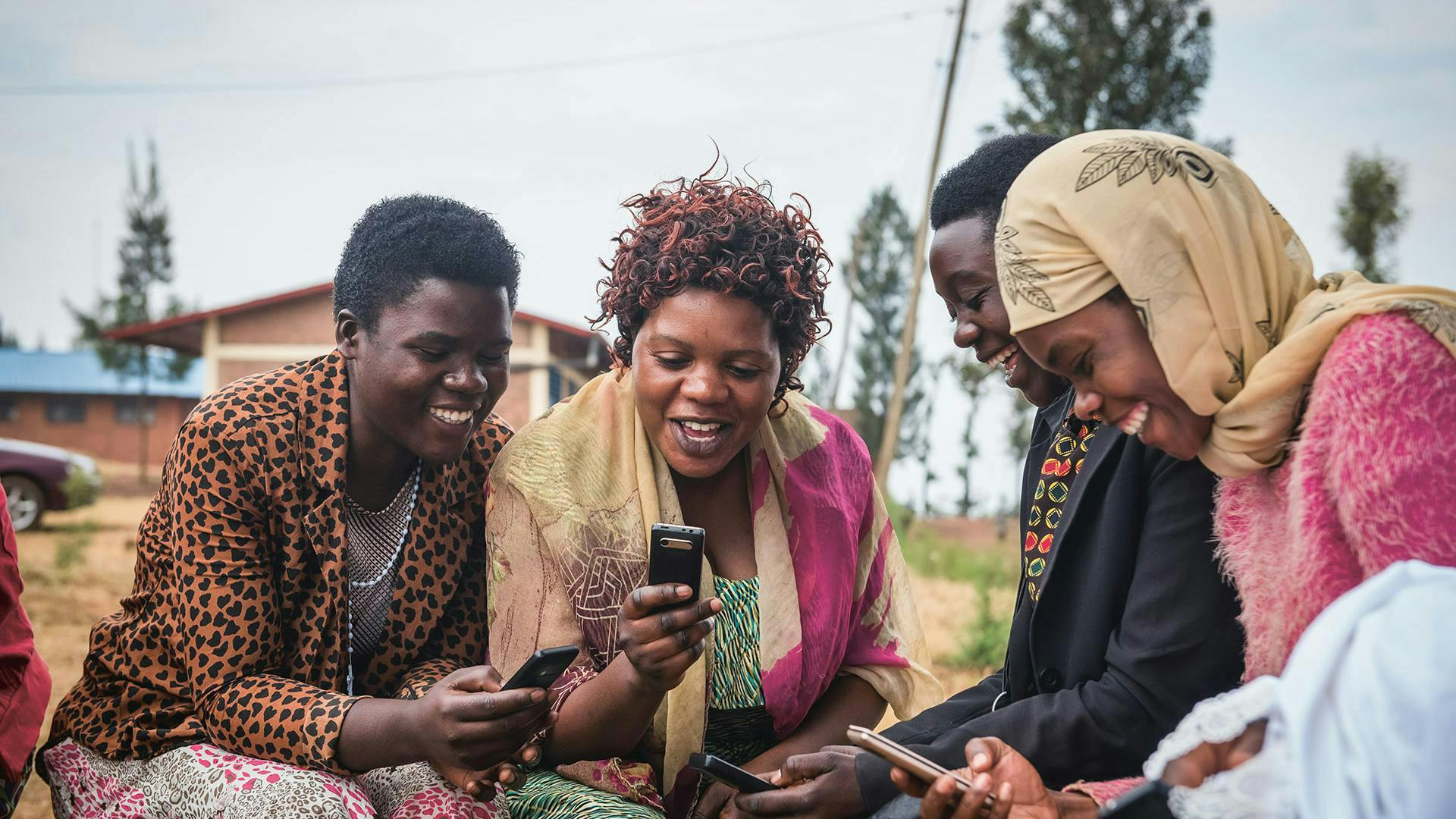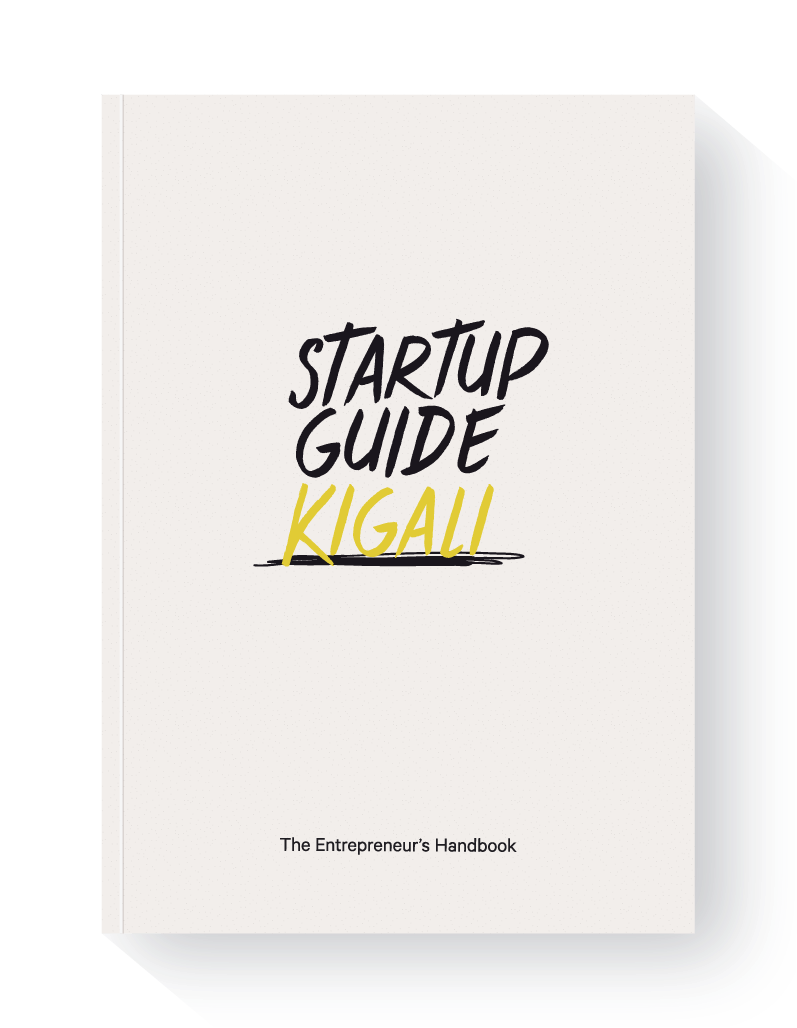Seven Kigali startups tackling local and global challenges
wanda's capital city is home to a quickly evolving startup scene, and many local entrepreneurs are developing impactful products and services that address the UN’s Sustainable Development Goals. Some of these ventures tackle uniquely African challenges, while others are creating solutions that have global application. Informed by Startup Guide Kigali, here are seven inspiring purpose-driven startups that are making a difference.

Imagine We
Dominique Uwase Alonga, CEO of Imagine We, didn’t intend to lead a publishing platform. “I think I fell into the work I was doing and it just morphed into other things,” she says.
Dominique had created a reading initiative for kids, but soon realized that there was a lack of easily available reading materials for the children she was working with. She set up a program for people from around the world to donate books, but many of the titles didn’t feature characters or plots that felt relevant to Rwandan youth.
In response, Dominique established Imagine We, a publishing house focused on creating books that reflect Rwandan life. It’s titles include stories that address the nation’s history of conflict in an age-appropriate way and educational texts that use local references, such as The ABCs of Rwanda. Its aim is to change reading culture among children and youth in Rwanda and to give a voice to young authors.
“It’s really always evolving,” Dominique says, explaining that Imagine We has grown by listening to its consumers and adapting its focus to better meet their needs.
The company accelerated its planned shift to digital-first content by launching an app during Rwanda’s COVID-19 lockdown. It currently publishes 12 print books a year, but the app enables Imagine We to extend its offerings and gauge the popularity of a story before committing it to print.

My Green Home
My Green Home was founded in 2017 as the happy by-product of an environmental sustainability class and two bright students who wanted to give back to their communities.
The company gathers plastic waste from collection points across Kigali and sorts it, ensuring that what can’t be used goes to another recycling partner. The plastic is washed and shredded, then melted and mixed with sand before being molded. The resulting brick is a highly durable product that represents a step forward in eco-friendly construction.
Cofounders David Kinzuzi and Rosette Muhoza competed with over a hundred applicants to receive business coaching from UNICEF partner Inkomoko Entrepreneur Development, and the company took first place in a UNICEF and Airtel pitch competition. They also won an award at the YouthConnekt Africa Summit in 2018, and the funding received from their success at both of these events allowed them to make My Green Home a viable business.
Since then, David and Rosette have expanded their team and offerings to include services such as delivery and bricklaying.
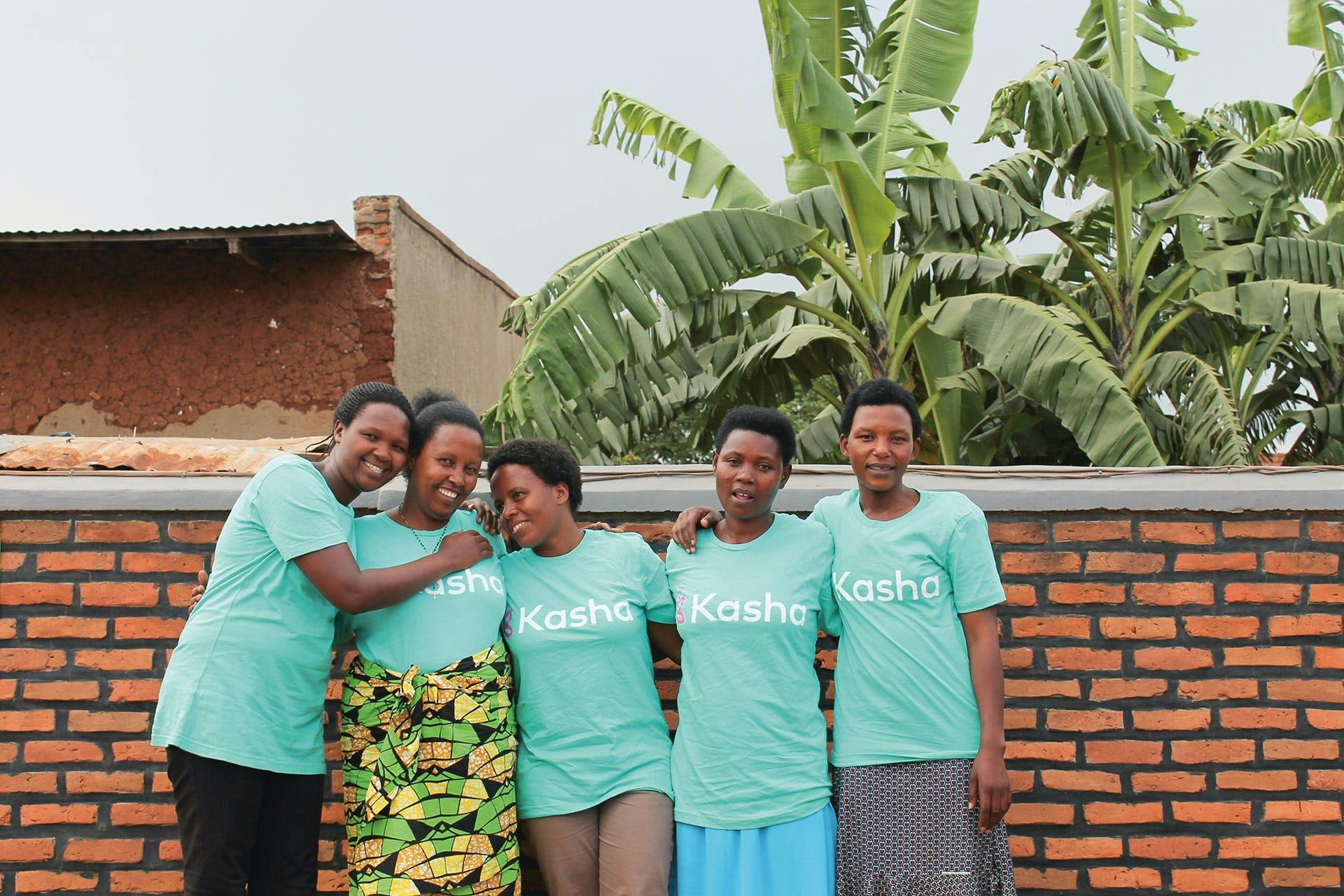
Kasha
After working in technology across Africa for a number of years, Joanna Bichsel began to notice a trend. Women, especially in rural areas, were being left behind. One key element of this was a lack of access to health products such as contraceptives and menstrual care combined with a social stigma about these resources.
“Everyone says we should optimize for women, yet women still have a really hard time getting the basic health products they need,” Joanna says. “In East Africa there's a very high mobile phone penetration across urban and rural areas and mobile money is more advanced than in other areas of the world. This enables a solution where women can confidentially order products in privacy.”
Joanna founded Kasha in 2016. The platform allows women to use their mobile devices to order the products they need and have them delivered directly, cutting out intermediaries and potentially uncomfortable in-person experiences.
Kasha has more than 65,000 customers, and the company has expanded into Kenya while continuing to grow in Rwanda. It aims to be the largest platform in the world for women’s health and self-care products and is specifically built for emerging markets.
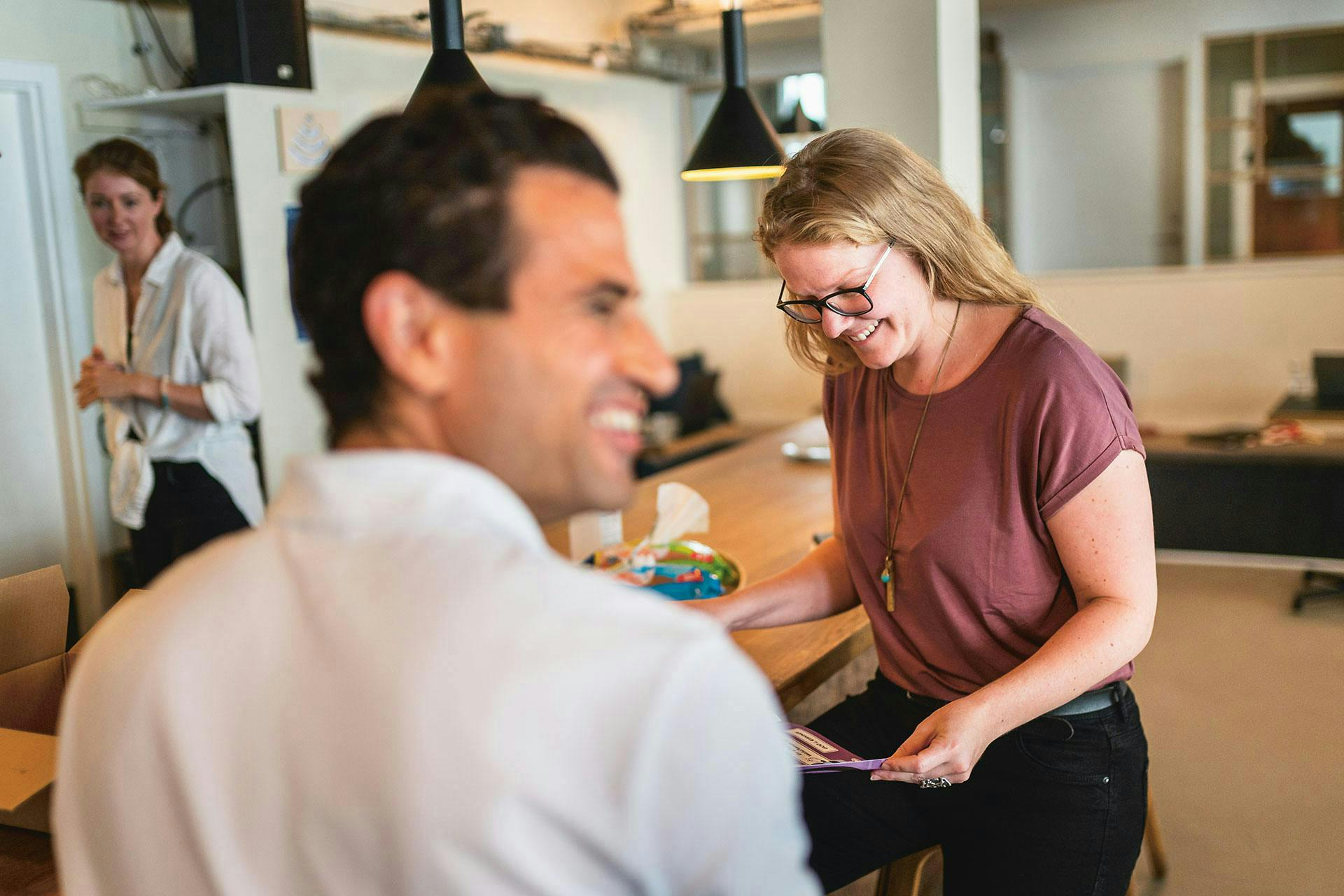
BeneFactors
Olivia Zank, the founder and CEO of BeneFactors, started out as an advisor in the Rwandan Ministry of Trade. She was responsible for promoting the exports of small and medium-sized enterprises, but soon noticed that access to capital was the biggest problem that these Rwandan SMEs faced.
Too big for microfinancing and too small for commercial bank lending, they were often left without the financial means to deliver on their promised exports. The ministry worked with banks to convince them to lend to SMEs, but its efforts largely failed. Frustrated, Olivia founded BeneFactors and set up office in the basement of a hotel.
BeneFactors provides factoring services to firms in “the missing middle.” Factoring is when a seller hands over their invoices to a third party. The third party pays the invoice and collects payment from the original buyer when it’s due.
“We’re a company that was founded to provide short-term working capital to financially excluded SMEs,” Olivia says.
Six hundred percent growth in both 2018 and 2019 demonstrates that it was a forward-thinking idea. Now with a team of 11 and handling $750,000 in assets, the company has moved out of that original basement office and has ambitions to expand into other countries.
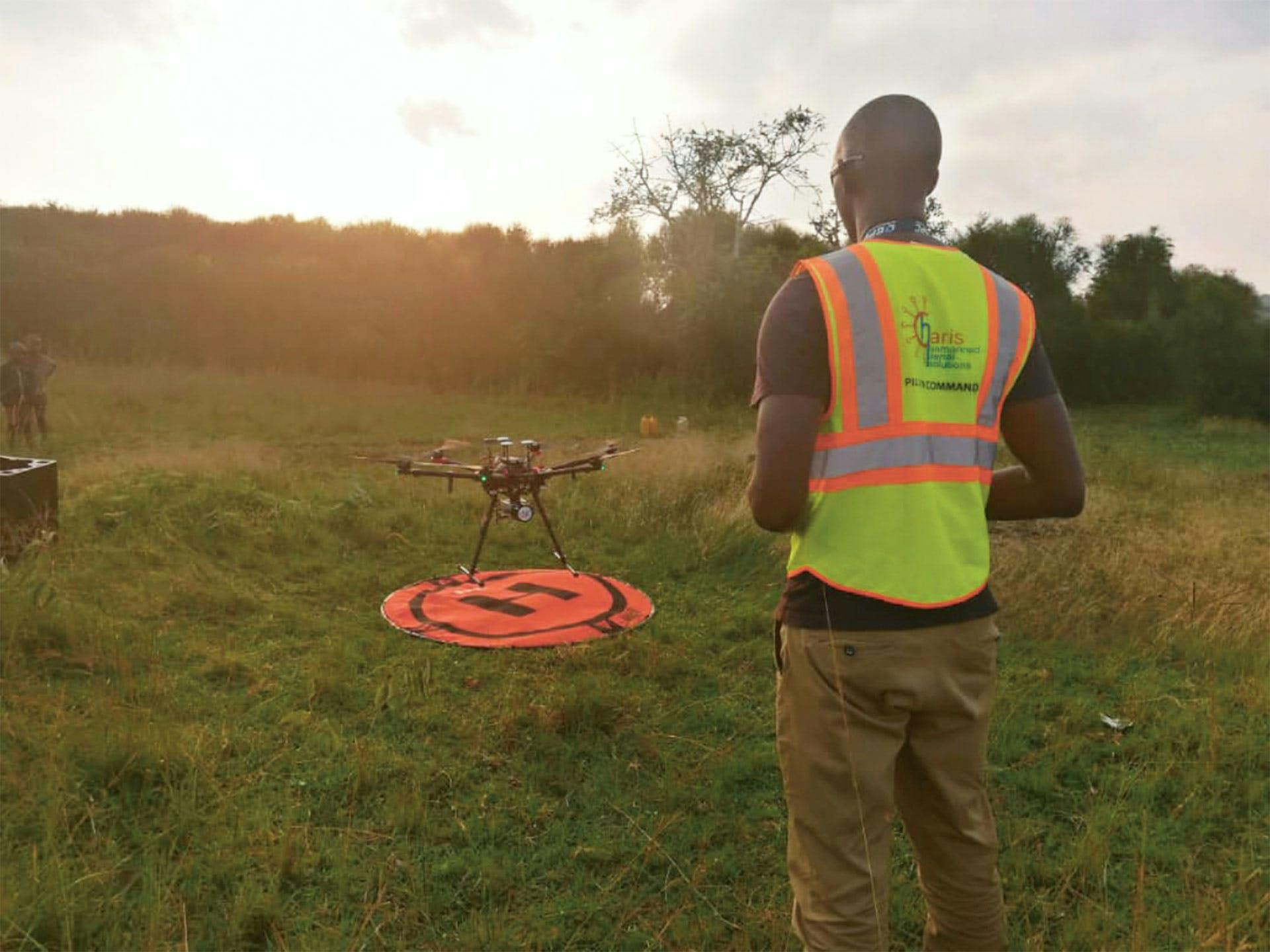
Charis UAS
Eric Rutayisire, the founder of Charis UAS, was introduced to drone technology by his mentor Kin Chan while studying at the University of Minnesota, Twin Cities.
Eric learned how to build drones and brought one home to Rwanda after graduating. He used it to take aerial footage of weddings and concerts before creating Charis UAS, Rwanda’s first licensed unmanned aircraft system (UAS) company, with cofounders Teddy Segore and Ingabire Muziga Mamy.
The company builds unmanned aerial vehicles (UAVs) and provides drone solutions across sectors including agriculture, construction, energy, health, tourism and mining. It has used machine learning to identify mosquito breeding sites and undertake targeted drone insecticide spraying to reduce malaria transmission.
Charis UAS now operates in five countries in Africa and is focused on finding new ways to disrupt industries and bring drone services to more people. This means intensive research and even pilot projects done at no cost to the client to prove the efficacy of using a drone solution. Charis UAS also has plans to start manufacturing drones customized to meet the specific needs of the continent.
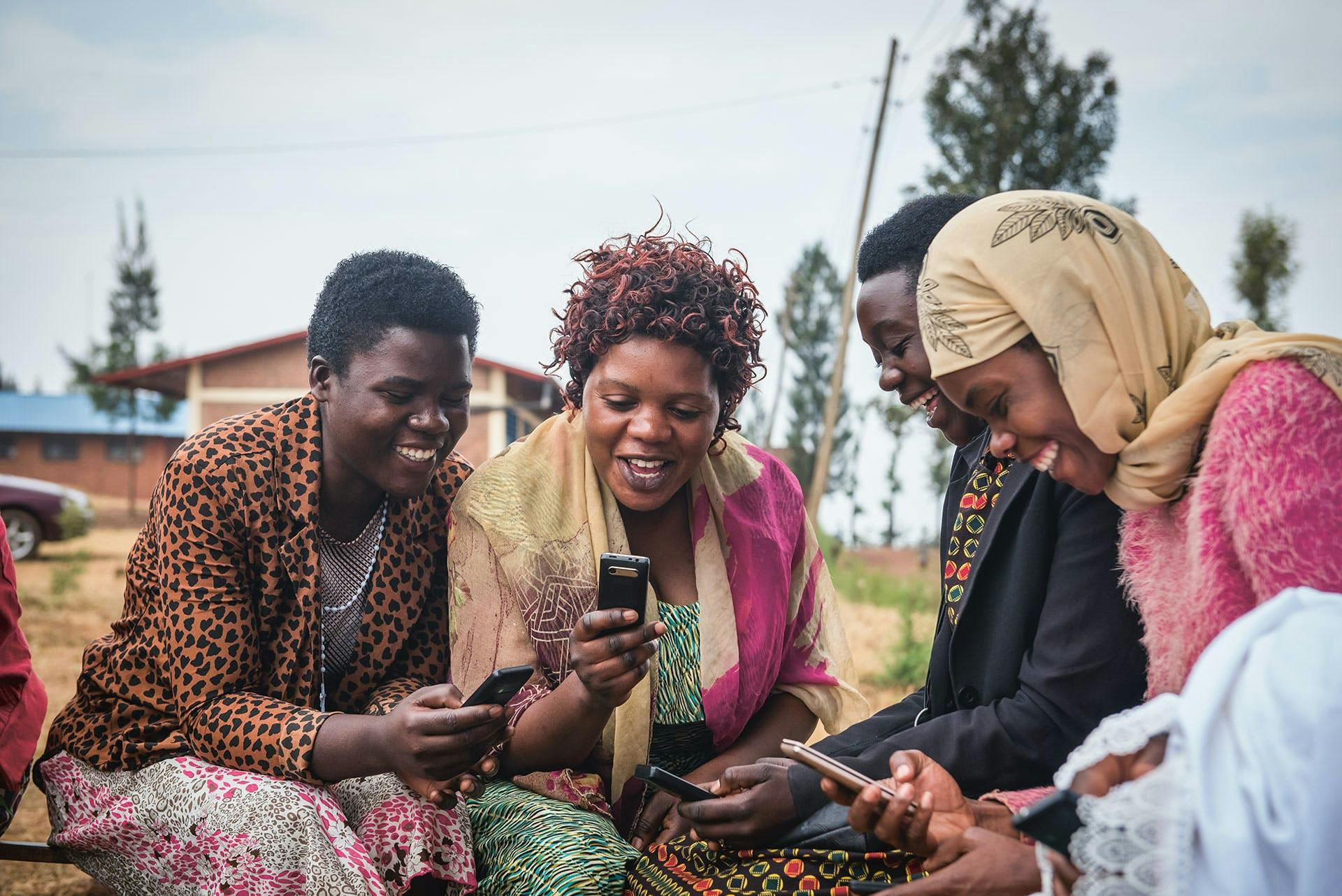
Exuus
Exuus is a software-development and fintech firm that increases access to financial services for traditionally excluded communities. “The drive for me has always been, ‘how do I achieve both wealth and impact?’” says CEO Shema Steve.
During a consulting job, he was introduced to savings groups, which are a big part of Rwandan people’s financial lives, particularly for rural women. Shema was hired to map these informal organizations and visited members, learning about their challenges and gaining an understanding of the role that savings groups could have in much-needed financial inclusion. He developed a platform to address some of these challenges, which would become Exuus’s product SAVE.
SAVE enables cashless transactions within savings groups either by USSD or via an app. It allows members to debit or credit the group’s digital wallet from their own, individual mobile wallets.
NGOs that support savings groups can use the tool to create and manage projects, assign agents to specific areas of intervention and receive real-time information from their agents.
The blockchain-based platform has data visible to all, so transactions are more transparent. Links to the formal financial sector can be more easily enabled, providing users with access to additional financial services. For the people using the platform, SAVE means increased agency, societal value and the ability to take more control over their futures and those of their communities.
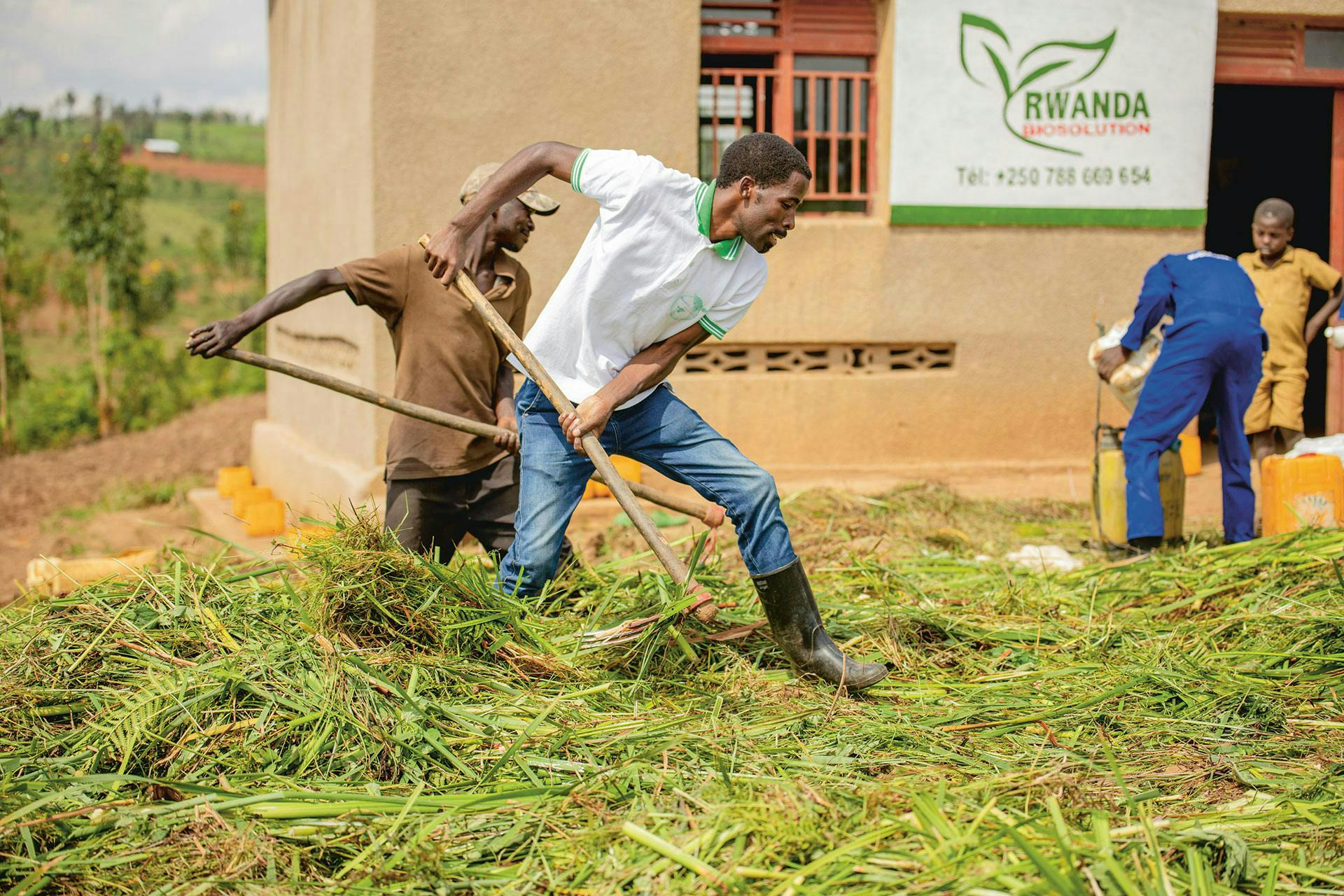
Rwanda Biosolution
Rwanda Biosolution is a producer of alternatively sourced organic fertilizer. The company uses microorganisms to transform farm and urban organic waste into potent fertilizer that not only improves crop yield but also restores land destroyed by chemical versions. This alternative solution can be produced quickly year-round and is affordable for local farmers.
Cofounder Theogene Ingabire says that the team discovered the need for the product at a farming conference in 2015 and then developed its solution at the University of Rwanda’s College of Science and Technology.
“The results in the lab were so positive that it pushed us to bring out the idea in the real world. That was the birth of Rwanda Biosolution,” he says.
Since its foundation, the company has worked with more than 100 farmers and built a team of six permanent and four part-time employees. Theogene says that it has ambitious plans for the next few years.
“My main goal is to serve as many farmers in need of our products as possible, with the key target being to establish a number of agents in five districts. We also want to establish a composting plant in Rwanda that will be able to serve more than two thousand farmers,” he says.
[Read more: Meet the Lagos startups using tech to drive change ]
Inspired to start your own business in Kigali? Want to learn more about the local ecosystem?
Order your copy of Startup Guide Kigali now.
Written by Cayleigh Bright, Kevin Hanley, Phineas Rueckert and Tom Jackson.
Repackaged by Hazel Boydell.
